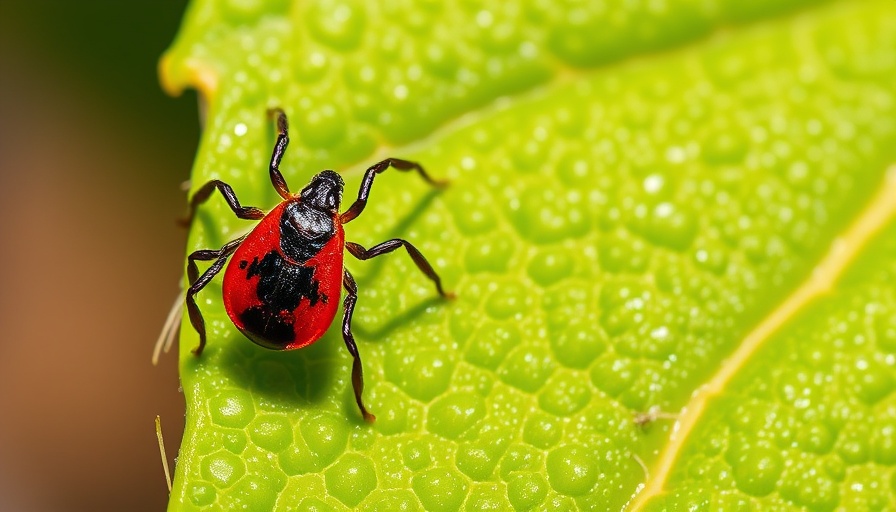
A Rising Concern: Ticks in the Grand Strand Area
As residents of the Grand Strand region from Myrtle Beach to Little River step outdoors, the increasing warmth and humid conditions create a near-perfect environment for ticks to thrive. These small parasites can be notoriously hard to spot but are drawn to our presence, especially in grassy areas and woods. According to experts, as populations grow, the chance of tick bites increases, making it crucial for locals to stay informed about effective removal techniques.
The Public Health Implications of Tick Bites
In South Carolina, ticks are known carriers of various diseases, most notably Lyme disease, anaplasmosis, and babesiosis. Although most tick bites do not lead to serious infections, awareness is key. Local epidemiologist Michel Shamoon-Pour emphasizes, "The best way to avoid health complications is not only to prevent bites but also to know how to react when a tick does attach. Rapid removal is crucial." Each summer, many families explore outdoor activities along the beautiful beaches and lush parks, but education on the potential risks — and how to mitigate them — is essential for community health.
Mastering the Art of Tick Removal
Removing a tick correctly is vital in preventing potential infections. The best method to ensure a complete and safe removal involves fine-tip tweezers. Avoid using fingers or wide-tipped tools as this can lead to improperly handling the parasite, which may endanger your health. For the safest approach, grab the tick by its mouth, which is embedded in your skin, and pull straight up with steady, even pressure. Do not twist or jerk, as this could lead to body parts staying lodged in your skin.
What to Do If a Tick Breaks
In some cases, a tick may break during removal, leaving parts embedded in the skin. Instead of panicking or digging around to remove these remnants, experts recommend leaving them alone. "It’s usually not a major concern," Shamoon-Pour reassures. Cleaning the area with rubbing alcohol is still vital, as is washing your hands immediately after.
Feeling Safe in Nature: Practical Tips for Locals
Anyone from Pawleys Island to Windy Hill needs to adopt preventive measures while enjoying the outdoors. Wear long sleeves and pants, apply insect repellent that contains DEET, and perform thorough tick checks after outdoor activities. Try to stay on marked trails and avoid tall grasses when possible — it’s these simple habits that can significantly reduce the chance of a tick encounter. By being proactive and staying informed, residents can savor the natural beauty of the Grand Strand without compromising their health.
Your Role in Community Health: Stay Educated
As the dialogue surrounding public health grows, it's essential for residents of the Grand Strand to engage with local health initiatives and perhaps even participate in workshops about tick prevention and risks. The more informed we are collectively, the better we can protect our community, especially during the summer months when outdoor activities peak.
Conclusion: Embrace the Outdoors Wisely
Embracing the beautiful outdoor lifestyle of the Grand Strand doesn’t have to come at the expense of your health. By understanding how to remove ticks safely and taking preventive measures, you foster an environment where the community thrives safely amidst nature. Enjoy everything from the serene beaches at Ocean Drive to the lush parks in Georgetown — just do it wisely!
 Add Row
Add Row  Add
Add 





Write A Comment